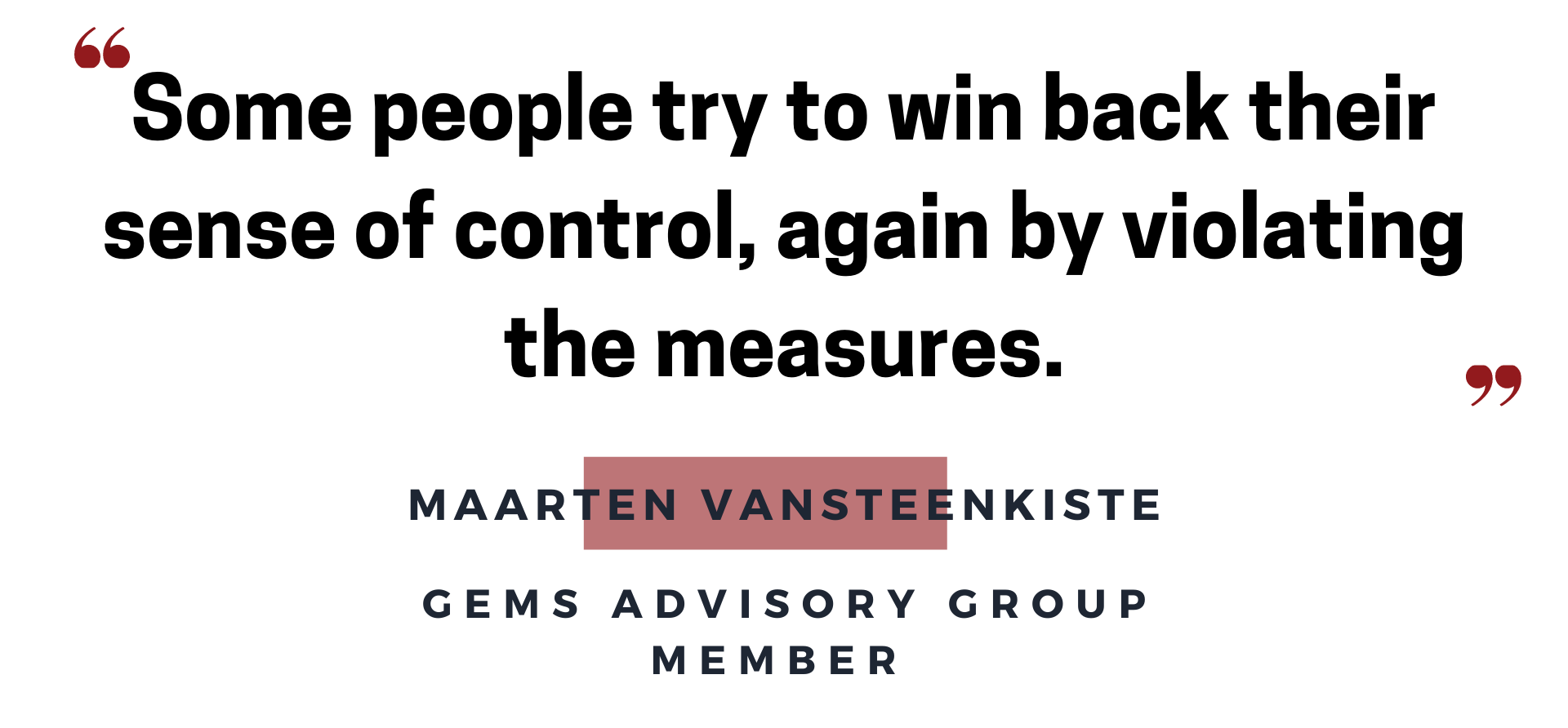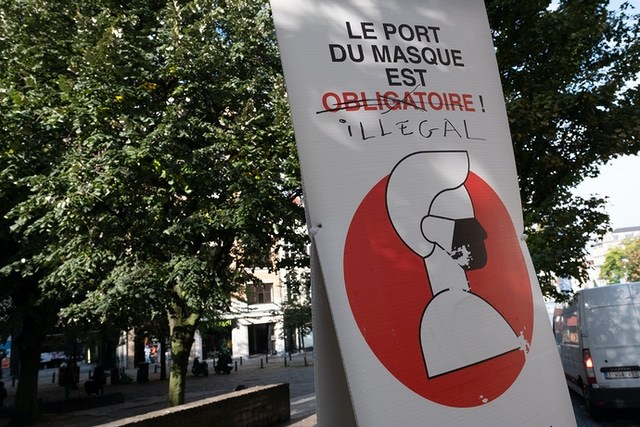Despite highlighting how people's mental health has been affected by the coronavirus crisis, Belgium's government is facing criticism for showing a lack of emotional understanding in its decision-making.
By not taking people's emotional responses into account, Belgium is potentially creating a vicious cycle where people lash out against measures, then measures get worse, which results in them lashing out again, according to motivational psychologist and GEMS advisory group member Maarten Vansteenkiste.
“Clear communication about what measures are being enforced, at what time they will be put into place and for what reason, helps to bring people's feelings of uncertainties under control,” Vansteenkiste told The Brussels Times.
Vansteenkiste, who monitors the motivation, connectedness, and psychological health of the population during this crisis, explained that in the run-up to important decisions being made on how to deal with this situation, people's feelings of uncertainty about the crisis increase.
“We noticed this in the period around the announcement of the second lockdown. How the situation will evolve is always the biggest source of uncertainty, and this has a lot to do with how clear the communication is around it,” he said.
When considering its communications on the crisis, Vansteenkiste emphasised that the government should keep three principles of the Self-Determination theory in mind to limit people's sense of uncertainty.
So what is the Self-Determination Theory?
First introduced by psychologists Edward Deci and Richard Ryan, the Self-Determination Theory looks at people’s experience of autonomy (choice and control over a situation), competence (effectiveness and success), and relatedness (feeling cared for by others, being trusted, and understood) in certain situations.
During the Covid-19 crisis, Vansteenkiste and other psychology experts found that these principles in individuals’ mental health play an important role during mentally challenging periods, by linking them to three different emotion regulation styles.
Psychological literature recognises three core ways in which people respond to uncertainty: either they accept the uncertainty and try to find answers (integration), they ignore the uncertainties (suppression), or they lose complete control over the uncertainties, which leads to increased anxiety (dysregulation).
This last response was recently displayed by thousands of people at the "fake festival" named La Boum held in Bois de la Cambre in Brussels on 1 April, during which large crowds gathered in violation of the coronavirus fighting measures.
Patrick Engelhardt, director of Psygroup and head of the Flemish Association of Clinical Psychologists (VVKP), told The Brussels Times that this is an example of dysregulation which caused people "to fight against or flee uncertainties" and even shows a certain denial of the danger, which again is connected to the personal context of people and how they deal with uncertainties.
This denial of danger is also why, as Vansteenkiste pointed out, "many people think the current measures are not so necessary, which in turn makes them experience them as a further infringement of their autonomy. They then try to win back their sense of control, again by violating the measures,” he said. 
Since measures lead to breaking rules, and the breaking of rules leads to new measures, both Vansteenkiste and Engelhardt see no option but a change of tactics.
Rewarding Good Behavior
Looking at the findings, one way of doing so is by being more encouraging of people who follow the measures, rather than focusing on penalising those who don't, Engelhardt explained.
"By doing so, the government could create a completely different atmosphere, sending a message which says that we are all in this together," he said.
This sort of attitude can be seen in the response of the Mayor of Brussels, Philippe Close, to the fake festival. "He said that if we want to get out of it as a collective, we will have to comply with a number of measures, but he reacted more cautiously than many and confirmed to young people that he understands their needs," Engelhardt explained.
If citizens feel that authorities understand their circumstances, they will feel more cared for, trusted, and understood, the psychologists explained. While the government has been told to support people in the following of measures, "it has not really taken this into account,” Engelhardt added.
"At this point, it is vital to clearly explain why measures are necessary today and why they will remain in place, because if that sense of necessity disappears, and people start to underestimate the risks of the situation, then a measure is quickly seen as disproportionate. We must communicate in a clear way about the continued necessity of those measures in the light of the risks we are running today,” Vansteenkiste concluded.

